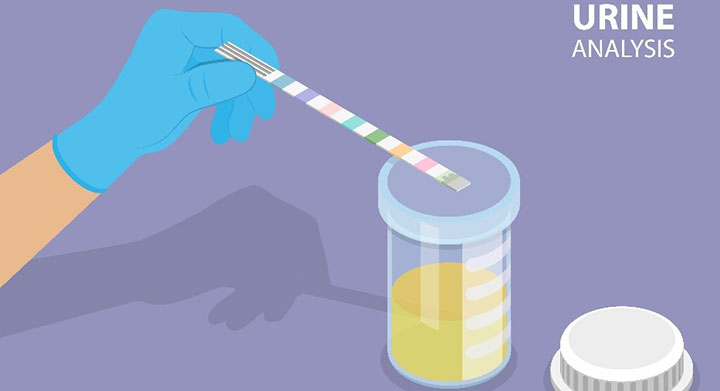The human body is an intricate web of interconnected systems, each playing a vital role in maintaining overall health. Among these, the kidneys stand out as unsung heroes, diligently filtering waste and excess fluids to ensure a delicate balance within. However, when the kidneys encounter challenges, it can manifest in various ways, with proteinuria being a significant red flag. In this comprehensive exploration, we will unravel the complexities of proteinuria and its intricate relationship with kidney disease.
1: Understanding Proteinuria
What is Proteinuria?
Proteinuria, a term that may sound intimidating at first, is simply the presence of an abnormal amount of protein in the urine. The kidneys act as meticulous gatekeepers, allowing essential substances to stay in the bloodstream while efficiently filtering out waste products. When this selective process goes awry, proteins, particularly albumin, may leak into the urine. This phenomenon is not a standalone condition; rather, it serves as a crucial indicator of underlying kidney issues.
The Role of Kidneys in Filtration
To appreciate proteinuria, one must understand the kidney’s primary function—filtration. The nephrons, the functional units of the kidneys, intricately filter blood, ensuring that essential components like red blood cells and proteins remain in circulation while waste products are excreted as urine. The glomerulus, a network of tiny blood vessels within the nephron, plays a pivotal role in this filtration process. Any disruption to this finely tuned system can lead to the escape of proteins into the urine, setting the stage for proteinuria.
2: Causes of Proteinuria
Kidney Diseases
- Chronic Kidney Disease (CKD): A progressive condition where the kidneys gradually lose their ability to function, leading to a buildup of waste in the body.
- Glomerulonephritis: Inflammation of the glomeruli, affecting their ability to filter blood effectively.
- Diabetic Nephropathy: Kidney damage resulting from long-term diabetes, particularly when blood sugar levels are poorly controlled.
- Polycystic Kidney Disease (PKD): Characterized by the formation of cysts on the kidneys, impacting their structure and function.
Systemic Conditions
- Diabetes: Diabetes is a major contributor to proteinuria, as elevated blood sugar levels can damage the kidneys’ filtration system.
- Hypertension (High Blood Pressure): High blood pressure can strain the blood vessels in the kidneys, leading to impaired filtration and protein leakage.
- Lupus: An autoimmune disease that can cause inflammation in various organs, including the kidneys.
Infections
- Urinary Tract Infections (UTIs): Infections in the urinary tract can result in inflammation and compromise the kidneys’ ability to filter effectively.
- Kidney Infections: Infections that directly affect the kidneys, leading to inflammation and potential damage.
Other Factors
- Medications: Certain drugs, especially nonsteroidal anti-inflammatory drugs (NSAIDs) and some antibiotics, may contribute to proteinuria.
- Intense Physical Activity: Strenuous exercise can sometimes cause temporary proteinuria, but it usually resolves with rest.
- Dehydration: Inadequate fluid intake can concentrate urine, potentially leading to proteinuria.
3: Symptoms of Proteinuria
One of the challenges associated with proteinuria is its asymptomatic nature in the early stages. However, as the condition progresses, individuals may experience:
- Foamy Urine: Excessive protein in the urine can cause it to appear foamy, a visual clue that warrants attention.
- Swelling (Edema): Proteinuria can lead to the retention of fluids, resulting in swelling, particularly in the ankles, feet, and face.
- Fatigue: Impaired kidney function can contribute to anemia, leading to fatigue and weakness.
4: Diagnosing Proteinuria
Given its often asymptomatic nature, the diagnosis of proteinuria relies on various tests:
- Urine Tests: The urine albumin-to-creatinine ratio (UACR) and the protein-to-creatinine ratio (PCR) are common tests to assess the level of protein in the urine.
- Blood Tests: Blood tests help evaluate kidney function and identify potential underlying causes.
- Imaging Studies: Imaging techniques such as ultrasound or CT scans may be used to visualize the kidneys and detect any abnormalities.
- Kidney Biopsy: In certain cases, a kidney biopsy may be performed to obtain a small tissue sample for detailed analysis.

5: The Link Between Proteinuria and Kidney Disease
Proteinuria is not a random occurrence; it is a vital clue pointing towards compromised kidney function. Healthy kidneys act as meticulous gatekeepers, allowing essential substances to stay in the bloodstream while efficiently filtering out waste products. When proteins like albumin find their way into the urine, it signals a breach in this filtration process, often indicative of an underlying kidney condition.
6: Managing Proteinuria and Preventing Kidney Disease Progression
- Blood Pressure Management: Controlling high blood pressure is paramount in slowing the progression of kidney disease.
- Diabetes Control: For individuals with diabetes, maintaining stable blood sugar levels is essential in preventing diabetic nephropathy.
- Lifestyle Modifications: Adopting a healthy lifestyle with a balanced diet, regular exercise, and adequate hydration can positively impact kidney health.
- Medication: Depending on the underlying cause, medications such as ACE inhibitors or angiotensin II receptor blockers (ARBs) may be prescribed to manage proteinuria.
- Regular Monitoring: Routine check-ups, including urine and blood tests, are essential for tracking kidney function and identifying any changes early on.
In the intricate tapestry of human health, proteinuria emerges as a vital thread, weaving a story of potential kidney dysfunction. Understanding its causes, symptoms, and the intricate link to kidney disease empowers individuals to take proactive steps in maintaining kidney health. Early detection and appropriate management can make a substantial difference in slowing down or preventing the progression of kidney disease. If you suspect any kidney-related issues or experience the symptoms mentioned, consult with a healthcare professional/nephrologist promptly for a comprehensive evaluation and personalized care plan. Remember, knowledge and proactive measures are key in safeguarding your kidneys and overall well-being.

